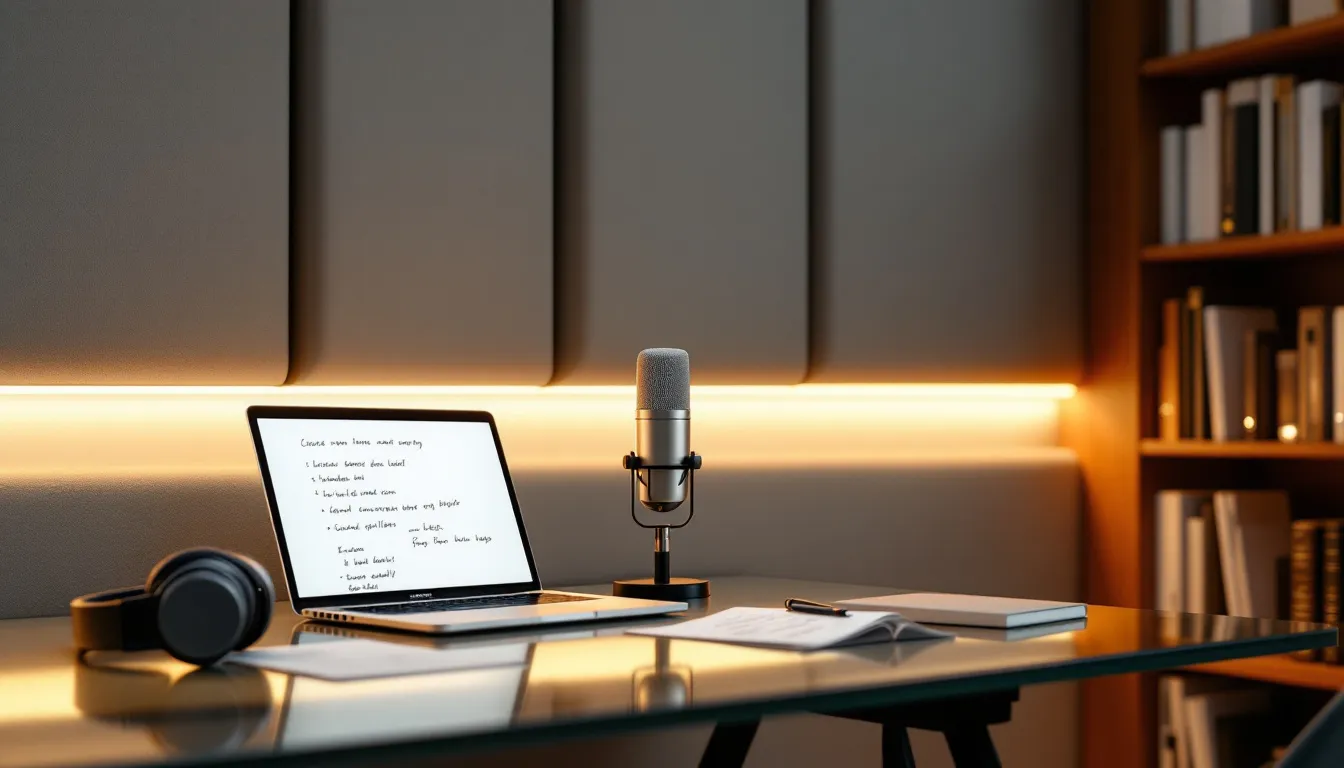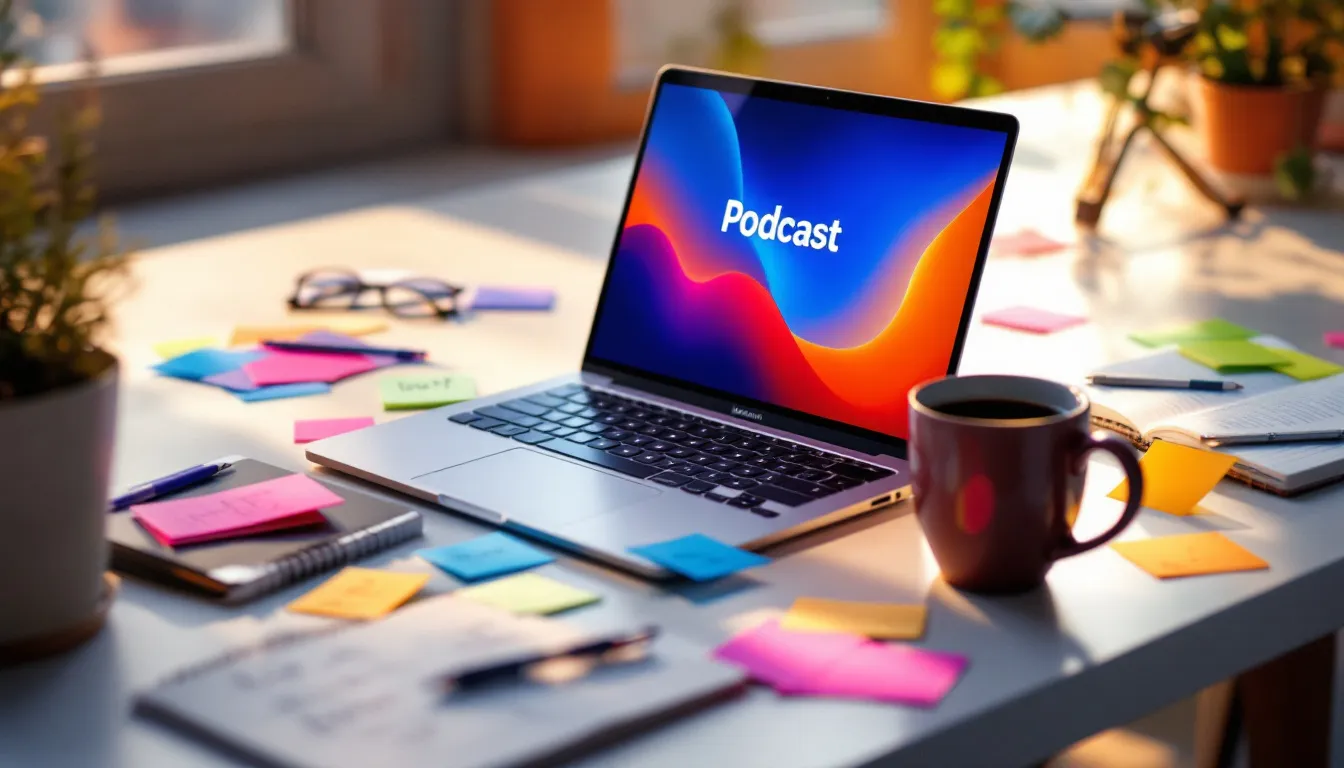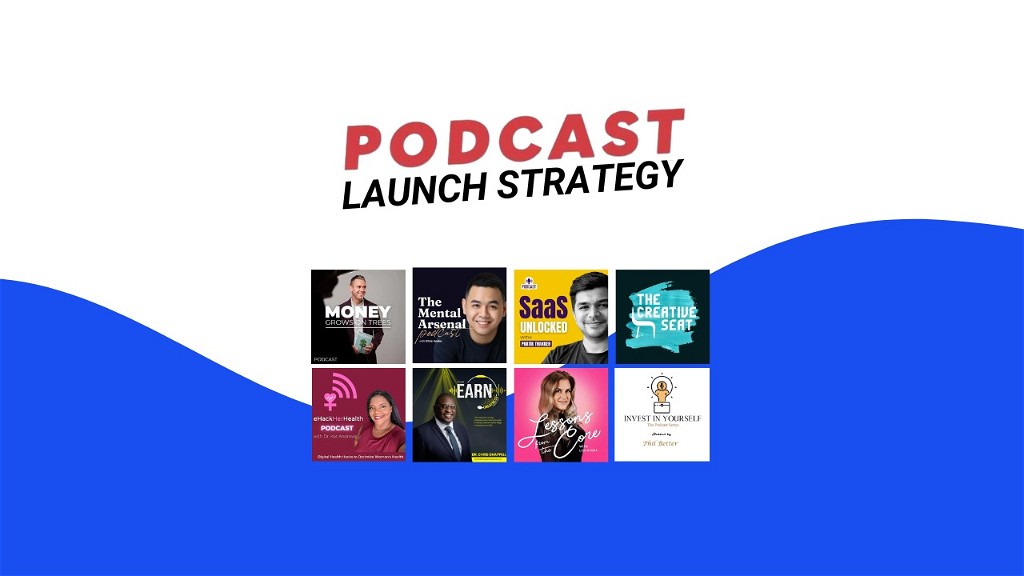Want smooth, engaging remote podcast interviews? Proper guest preparation is key. Here’s a quick breakdown of the 5 essential steps to get it right:
- Communicate Clearly: Share your podcast details, purpose, and audience. Provide an episode outline, technical requirements, and tips for good audio. Use scheduling tools to set a time and avoid mix-ups.
- Help with Equipment Setup: Recommend a good USB mic, headphones, and a quiet space. Share tips for reducing noise and echoes. Have backup plans for technical issues, like alternative platforms or local recordings.
- Prepare Episode Content: Set time expectations, explain the episode focus, and send sample questions in advance. This helps your guest feel confident and ready.
- Do a Test Call: Test their internet, microphone, and recording space 2–3 days before the interview. Walk them through the recording platform and prepare for common technical problems.
- Interview Day Prep: Check all equipment 30 minutes before recording. Minimize distractions and help your guest feel relaxed with a casual pre-show chat.
Follow these steps to ensure great conversations and professional results for your podcast episodes.
Related video from YouTube
1. Communicate Clearly with Your Guest
Good communication is the backbone of a smooth remote podcast interview. Setting clear expectations and sharing all the necessary details upfront can help avoid confusion and technical hiccups during your recording.
Share the Purpose and Details
Begin by explaining your podcast's style, who your audience is, and how your guest's expertise fits into the conversation. Let them know what to expect by sharing your typical episode format and what sets your show apart. To make this easier, send a pre-interview package that includes:
- An outline of the episode with key discussion points.
- Technical requirements for the recording session.
- A media kit that introduces your podcast and its audience (this helps your guest tailor their message to your listeners).
- Tips for achieving good audio quality and creating an ideal recording setup.
- Backup communication options in case of technical issues.
Consider scheduling a brief pre-call to address any questions and ensure everything is technically ready. Follow up with your guest to confirm they’ve received and reviewed the materials.
Set a Date and Time
Use scheduling tools to make coordination easier. Keep time zones and potential conflicts in mind. Send calendar invites with clear time zone information, and double-check the conversion with your guest to avoid mix-ups. Offer several time slots and be flexible, especially if your guest is in a different part of the world.
Once communication is clear, the next step is helping your guest get their equipment ready to guarantee a smooth technical experience.
2. Help Your Guest Set Up Their Equipment
Recording remotely has become a key skill for podcasters. It allows flexibility and brings in a variety of voices. But to ensure the best audio quality and smooth interviews, having the right equipment is crucial.
Equipment and Space Setup
Recommend simple, reliable recording gear that matches your guest's budget and comfort level. A good USB microphone, like the Blue Yeti or Audio-Technica AT2020, delivers great sound without being overly complicated. Also, remind them to use headphones - they're a must for clear communication and avoiding audio feedback.
For the recording space, share these tips to improve sound quality:
- Turn off anything noisy, like fans or air conditioners, and close windows to block outside sounds.
- Use soft items, like blankets or pillows, to dampen echoes and absorb sound.
- Silence phones and shut down unnecessary apps to avoid interruptions.
- If possible, connect directly to the internet with an ethernet cable for a more stable connection.
Have a Backup Plan
Technical hiccups can happen, but having a backup plan keeps things running smoothly. Platforms like Zoom or Zencastr can serve as secondary recording options. Encourage your guest to also record locally using tools like Audacity or GarageBand while using your main platform.
Some platforms, such as SquadCast, automatically create local recordings. This ensures you have high-quality audio backups even if the internet acts up.
Once your guest's setup is good to go, it’s time to get them ready for the content of the episode.
sbb-itb-cdb7710
3. Prepare the Episode Content
Now that your technical setup is ready, it’s time to focus on crafting the content that will make your episode stand out. Collaborating with your guest to align on the episode's direction and structure ensures a smooth, engaging conversation.
Set Time Expectations
Let your guest know the total episode length and how the time will be divided between segments. This helps them pace their responses and makes sure you cover all the key topics without rushing.
Explain the Episode Focus
Give your guest a clear rundown of the episode’s topic and the specific areas of their expertise you plan to discuss. For instance, if you're speaking with a business leader about managing remote teams, clarify whether the focus will be on communication strategies, productivity tools, or fostering company culture.
Provide Sample Questions
Send your guest 5-7 key questions at least 48 hours before the recording. This is ideal for a 30-45 minute episode and gives them time to prepare. Mention that follow-up questions will keep the conversation dynamic. Structure your questions to include an introduction for context, a deep dive into their insights, and actionable advice for your audience.
Once your content is ready, the next step is to ensure everything runs smoothly with a quick test call before recording day.
4. Do a Test Call Before the Interview
Doing a test call is a smart way to make sure your podcast recording goes off without a hitch. This step helps you spot and fix technical issues ahead of time while also boosting your guest's confidence. Aim to schedule this check-in about 2–3 days before the actual interview to iron out any problems early.
Test the Connection and Audio
Make sure your guest’s internet connection is solid (at least 10 Mbps upload speed), and check their microphone and audio quality. Ask them to test from the exact location and with the same equipment they’ll use for the interview.
"Technical preparation is essential for a successful podcast interview. Ensure your guest has a charged computer, working equipment, a quiet recording space, and a strong internet connection", says Lower Street, a professional podcast production company.
Walk Them Through the Software
Take a moment to explain the key features of your recording platform. Show them how to mute/unmute, adjust audio settings, and use the chat for quick communication if needed. If they’re new to the platform, consider sending them a short video tutorial they can refer to later.
Be Ready for Technical Issues
Have a backup plan in place for common problems like slow internet (a mobile hotspot can help) or software glitches (switch to tools like Zoom or Skype). Share your phone number so they can reach you if something goes wrong. And, as mentioned earlier, always have alternative recording options ready to go.
Once you’ve handled the technical side, you’ll be free to focus on making the interview day smooth and enjoyable for everyone involved.
5. Get Ready on the Day of the Interview
Once the test call is done, it’s time to prepare for a smooth recording session on interview day.
Check All Equipment
About 30 minutes before the interview, do one final check of your setup. Test your internet speed - aim for at least 10 Mbps upload speed to ensure clear audio. Plug in your external microphone and headphones to cut down on echo and delays. Use this time to confirm your guest’s equipment and connection are working well, so there’s time to address any last-minute hiccups.
"Technical preparation is crucial for a professional podcast recording. A proper equipment check should include testing your recording software's settings, ensuring your backup recording method is ready, and verifying that all audio feeds are working correctly", notes Podcast Launch Strategy's technical guide.
Minimize Distractions
Ask your guest to close any unnecessary apps, turn on 'Do Not Disturb' mode on their phone, and let others in their household know about the recording schedule. Disabling notifications on smart devices can also help avoid interruptions during the session.
Once the tech and environment are set, your focus should shift to making your guest feel relaxed and ready.
Help Your Guest Feel at Ease
Start with a casual 5–10 minute chat to break the ice and establish a connection. Confirm their microphone placement, remind them that any mistakes can be edited out, and explain how to signal if there’s a technical issue. Encourage them to keep some water nearby and ease any nerves with a lighthearted pre-show conversation.
Conclusion
Hosting successful remote podcast interviews comes down to thoughtful preparation and making your guest feel at ease. When you combine solid technical groundwork with genuine connection, you create a smooth experience for everyone involved.
Start with reliable recording tools and always have a local backup to ensure top-notch audio quality and avoid interruptions. Today's platforms make it easier than ever to achieve professional results from remote setups.
"Technical preparation is the foundation of professional podcast production. When hosts and guests are well-prepared, the conversation flows naturally, resulting in engaging content that resonates with listeners", says Chris Cownden, founder of Podcast Launch Strategy.
While equipment checks are crucial, prioritizing your guest's comfort is what truly leads to meaningful, engaging conversations. After the interview, take the time to thank your guest and share any materials they can use to promote the episode. If you're eager to sharpen your podcasting skills, resources like Podcast Launch Strategy can provide the guidance and community support to help you grow.




